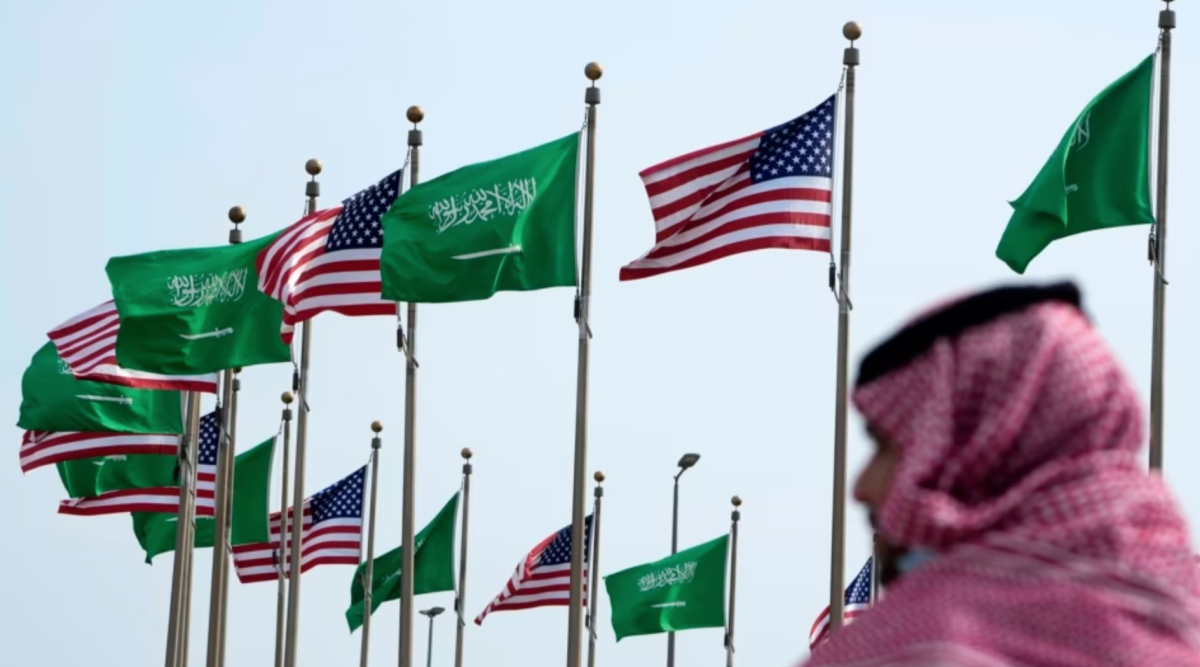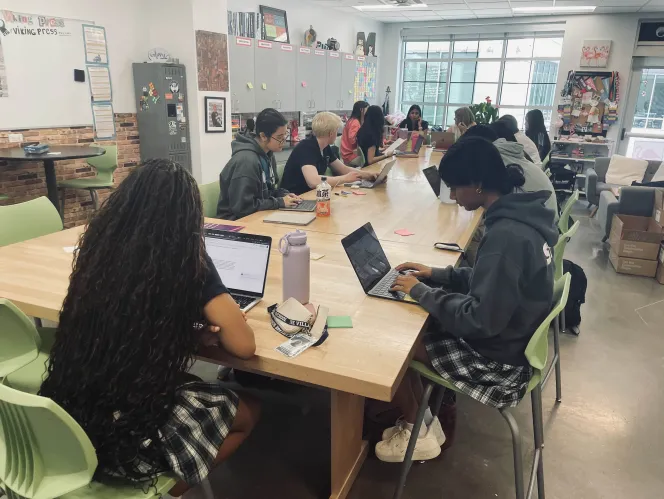President Biden wants peace. President Xi-Xiping wants peace. Crown prince Mohammed Bin Salman wants peace. Even Hitler, American social critic Noam Chomsky argues, “wanted peace. Everybody Wants Peace. But on what terms?” (Chomsky et al). Chomsky’s question reveals the universal plight of world leaders, scholars, and global citizens: “peace,” an ever shifting term based on differing groups’s interests, remains an elusive ideal. This is especially true in the Middle East where the “peace process” over relies on power from “the barrel of a gun” (Marshall). In particular, the definition of “peace” in the Middle East, and its cost, haunts the United State’s (U.S) relationship with the Kingdom of Saudi Arabia, as the U.S often finds itself sacrificing its tenets of human rights for security concerns. But now, stealing a page from Chomsky’s book, I ask can peace ever be accomplished in a world, a region, a nation where human rights don’t dictate its terms? To secure such a human-rights founded peace, is Saudi Arabia still a worthwhile U.S ally? First, to answer this question let’s take a look at the tumultuous Saudi-U.S relationship.
Saudi Arabia’s strategic location, unique role in the Islamic world as the custodian of the two holy mosques, and its holding of the world’s second largest oil reserves maintains the U.S’s interest in their long-standing bilateral relationship (“U.S. Relations”). The US-Saudi relationship is founded on the unwritten Oil for Security pact, in which Saudi Arabia maintains a steady supply of oil in exchange for the United States fulfilling the Kingdom’s security needs (Kalin). Collaboration between the two nations’ has become crucial in the effort towards establishing greater stability in the region. Since the rise of Crown Prince, and de facto ruler, Mohammad bin Salman (MBS), Saudi Arabia has been praised internationally as a beacon of progress in the Middle East for their revolutionary reforms, such as allowing women to drive in 2018. However, as CNN Podcast Host Fareed Zakaria points out, MBS is the “greatest hope for U.S goals but also the greatest impediment to Washington relationships.” This duality stems primarily from outrage against Saudi Human Rights abuses, especially in regard to the 2018 assassination of Washington Post Journalist, Jamal Kashoggi, at the Saudi Embassy in Turkey. His death is deemed by U.S Intelligence to have been sponsored by the Crown Prince directly (Reuters Staff). Since then, the U.S relationship with Saudi Arabia has been defined by President Biden’s campaign promise to retaliate, to make the Kingdom a “pariah” state and recalibrate the U.S.-Saudi relationship (Blanchard). This recalibration comes with the challenge of balancing a human rights based approach while still promoting U.S security interests in the region.
Since the discovery of oil in 1938, the relationship between the United States and Saudi Arabia has been centered on safeguarding that oil, particularly from hostile regional actors, such as Iran. The U.S’s current mission in Saudi Arabia, security-wise, is to “advance regional stability…and [maintain] the United States as the leading partner in Saudi Arabia’s defense acquisitions…so that it becomes a more capable ally” (Integrated Country). Historically, U.S Arms sales and counterterrorism efforts have been key parts of this initiative. Saudi Arabia is the United States’ largest foreign military sales customer, with more than $100 billion in active cases as of 2022 ( “U.S. Relations”). Arm sales have been a key diplomatic strategy in advancing the relationship in the region as it detters Iran and reduces the need for U.S deployment.
However, beyond dual military and counterterrorism measures, US-Saudi Cooperation in Yemen has also been a defining factor in the conjoined efforts towards regional peace and security. The Civil War in Yemen, which Saudi Arabia joined in 2015, rages between the Saudi backed Yemeni government and the Iranian backed Houthi rebels. Between 2015 and 2022, the Houthis carried out nearly 1,000 missile attacks against key infrastructure, including oil facilities, inside the Kingdom (Al-Dawsari). Saudi Arabia, as well as the U.S, has since been looking for a way out of the conflict that is non-military. Encouraged by the U.S, the Kingdom scaled back its military intervention, stepped up its diplomatic efforts to de-escalate towards a political solution, and cast aside its ambition of reinstating the ousted Yemni government (Al-Dawsari). The fact sheet released by the White House in July 2022 after President Biden’s visit to Saudi Arabia, “reaffirmed the U.S. commitment to help Saudi Arabia defend its territory…from Iranian-backed Houthis” (“FACT SHEET”). Though the Biden Administration has continued to support Saudi Arabia’s defensive operation, by approving the $3.05 billion sale of Guided Enhanced Tactical Ballistic Missiles (Al-Dawsari), it ended support for the Saudi offensive bombing campaign, as it disproportionately affected civilians (Marlow). Furthermore, in April 2022, U.S diplomats facilitated a ceasefire between the Saudis and Houthis that has since largely stopped the fighting, paved the way for intensive dialogue, and secured a recent deal to release 900 detainees from both sides of the conflict (Patel). One of President Biden’s major contentions regarding Saudi Arabia is the disastrous human right’s role of the conflict in Yemen. The United Nations World Population Fund reports, “in 2023, a staggering 21.6 million people require some form of humanitarian assistance as 80 percent of the country struggles to put food on the table and access basic services.”
Despite this success, the U.S current top-down refusal to provide offensive weaponry, as well as the enduring perception by Saudi’s of U.S regional abandonment since its lack of response to Iran’s 2019 drone attack on Saudi oil infrastructure, has left the region open to Chinese intervention. As part of a China-brokered deal in late March 2023, Iran has agreed to halt covert weapons shipments to its Houthi allies (Gallagher et al.) This new relationship, despite a lack of U.S facilitation, could be positive as the resumption of Saudi-Iranian relations will help solidify the truce in Yemen but it is also in part negative for, once more, peace is facilitated on the terms of autocratic nations (McFaul and Milani). This realignment could also prove catastrophic to the U.S’s economic stability. There is concern that Saudi Arabia could make major changes in their oil trade policies, particularly in regards to the Kingdom requirement that all its oil customers use U.S dollars. As of mid march 2023, U.S specialists fear that Saudi leaders are considering changing this standard by accepting the Yeoun when selling oil to China. This decision could have disastrous consequences on the U.S economy as explained by Ryan Knustosn, co-host of the Journal podcast, for it “would chip away at the U.S Dollar as the reserve currency… and in the long run could weaken the Dollar” (Knutson). Therefore, the United States diplomatic failure to, in the Saudi perspective, hold up their end of the Oil for Security pact, has driven Saudi Arabia into the arms of China, which has the potential to undermine the Saudi-U.S relationship.
Therefore, to drive a much-needed reconciliation of US-Saudi relations in the Biden Era, a few fundamental changes must occur. First, it’s time for the United States to transition from a system of guardianship to one of constructive partnership. To do so, the U.S must shift from solely acquiring and training Saudi forces on American equipment to instead “investing in defense institutions across multiple domains, including…human capital development” (Saab). Additionally, it is crucial for the promotion of long-term stability in the Kingdom, and the region, to ensure Saudi Arabia balances national security concerns with respect for human rights. This part of the Peace Process requires confidence-building measures and risk-reduction strategies, such as articulating a Saudi-U.S “strategic vision” that includes, but extends beyond, defense and counterterrorism partnership, one that will “build a relationship that political leaders on both sides are prepared to publicly defend” (Blanchard). To do so, to promote U.S values, it is crucial to center Human Rights as key to this “strategic vision” for it offers a sustainable peace alternative to autocratic rule (McFaul and Milani ). It must also be demonstrated to Saudi Arabia by the highest level of government, that reconciliation with a Post-Khashoggi America will occur at the price of making visible efforts to lead reforms, such as peace building with Yemen and the elimination of targeting of dissidents, like Kashoggi.
Hence, though at times the question of whether sustaining a US-Saudi relationship is worth it, as an anonymous senior Saudi official wrote to The Atlantic in July 2019, “ultimately, it is too important (for the world) to fail” (Friedman and Bayoumy). The United States cannot ensure its national security, or promote its interests in the Middle East, successfully without Saudi Arabia, a strategic ally and custodian of Islam’s two holiest sites. Without the United States’s support in the Middle East, a power vacuum could be filled by authoritarian states like China and Iran. The key now is to successfully recalibrate the US-Saudi relationship, through diplomacy, into one that is mutually constructive, and to answer Noam Chomsky’s question, founded on the terms of both promoting security and human rights.
Refrences
Al-Dawsari, Nadwa. “A Saudi-Houthi deal won’t bring lasting peace in Yemen.” Middle East Institute, 27 Mar. 2023, www.mei.edu/publications/saudi-houthi-deal-wont-bring-lasting-peace-yemen. Accessed 3 Apr. 2023.
Batrawy, Aya. “Oil, human rights, security: Here’s what’s in store for U.S.-Gulf relations in 2023.” NPR, 12 Jan. 2023, www.npr.org/2023/01/12/1147818054/saudi-arabia-gulf-nations-us-relations. Accessed 3 Apr. 2023.
Blanchard, Christopher. Al Qaeda: Statements and Evolving Ideology. Congressional Research Service , 16 november 2024, irp.fas.org/crs/RS21973.pdf. Accessed 3 Apr. 2023.
—. Saudi Arabia: Background and U.S. Relation. Congressional Research Service, 5 october 2021, sgp.fas.org/crs/mideast/RL33533.pdf. Accessed 2 Apr. 2023.
Chomsky, Noam, et al. How the World Works: Four Classic Bestsellers in One Affordable Volume. Berkeley, Soft Skull Press, 2011.
Cook, Steven A., and Martin Indyk. The Case for a New U.S.-Saudi Strategic Compact. Council on Foreign Relations, june 2022, cdn.cfr.org/sites/default/files/report_pdf/CFR_CSR94_U.S.-SaudiStrategicCompact.pdf?_gl=1*ekvh9l*_ga*MTk1NDcxNDIxNi4xNjgwMDIxNzQz*_ga_24W5E70YKH*MTY4MDQ4OTg2NS43LjEuMTY4MDQ5MDU1OS4wLjAuMA. Accessed 3 Apr. 2023.
Country Reports on Terrorism 2019: Saudi Arabia. Department of State, 2019, www.state.gov/reports/country-reports-on-terrorism-2019/saudi-arabia/. Accessed 3 Apr. 2023.
“FACT SHEET: Results of Bilateral Meeting Between the United States and the Kingdom of Saudi Arabia.” The White House, 15 july 2022, www.whitehouse.gov/briefing-room/statements-releases/2022/07/15/fact-sheet-results-of-bilateral-meeting-between-the-united-states-and-the-kingdom-of-saudi-arabia/. Accessed 3 Apr. 2023.
Farouk, Dr. Yasmine. “Dr. Yasmine Farouk on Saudi Arabia’s Foreign Policy.” Interview by Zara Ali. Georgetown Journal of International Affairs, 24 may 2021, gjia.georgetown.edu/2021/05/24/dr-yasmine-farouk-on-saudi-arabias-foreign-policy/. Accessed 2 Apr. 2023.
Feierstein, Gerald, and Yoel Guzansky. “The Arab Peace Initiative returns. Will it supplant the Abraham Accords?” Middle East Institute, 7 october 2022, www.mei.edu/publications/arab-peace-initiative-returns-will-it-supplant-abraham-accords.
Feierstein, Jerry. “Saudi Arabia: Liberalization, Not Democratization.” American Foreign Service Association, afsa.org/saudi-arabia-liberalization-not-democratization. Accessed 3 Apr. 2023.
Fontenrose, Kirsten. “Punish Riyadh or play it cool? How the United States can renegotiate its relationship with Saudi Arabia.” The Atlantic Council, 10 november 2022, www.atlanticcouncil.org/blogs/new-atlanticist/punish-riyadh-or-play-it-cool-how-the-united-states-can-renegotiate-its-relationship-with-saudi-arabia/. Accessed 3 Apr. 2023.
Friedman, Thomas L. “Saudi Arabia’s Arab Spring, at Last.” The New York Times, 23 november 2017, www.nytimes.com/2017/11/23/opinion/saudi-prince-mbs-arab-spring.html. Accessed 3 Apr. 2023.
Friedman, Uri, and Yara Bayoumy. “THE U.S.-SAUDI ALLIANCE IS ON THE BRINK.” The Atlantic, 1 July 2019, www.theatlantic.com/politics/archive/2019/07/trump-blocking-big-change-us-saudi-alliance/592504/. Accessed 3 Apr. 2023.
Gallagher, Adam, et al. “What You Need to Know About China’s Saudi-Iran Deal.” United States Institute of Peace, 16 march 2023, www.usip.org/publications/2023/03/what-you-need-know-about-chinas-saudi-iran-deal. Accessed 3 Apr. 2023.
“GDP- Saudi Arabia.” World Bank, 2021, data.worldbank.org/indicator/NY.GDP.MKTP.CD?locations=SA. Accessed 3 Apr. 2023.
Hamasaeed, Sarhang, and Joel E. Starr. “After Xi’s Visit, Are the Saudis Moving on from the United States?” United States Institute of Peace, 15 Dec. 2022, www.usip.org/publications/2022/12/after-xis-visit-are-saudis-moving-united-states. Accessed 3 Apr. 2023.
Integrated Country Strategy (Saudi Arabia). 11 July 2022, www.state.gov/wp-content/uploads/2022/07/ICS_NEA_Saudi-Arabia_Public.pdf. Accessed 3 Apr. 2023.
Kalin, Stephen, host. “The Collapsing US-Saudi Relations.” The Journal Podcast, 26 october 2022. Spotify. Accessed 2 Apr. 2023.
Knutson, Ryan, host. “Saudi Arabia Cools on the US, Warms to China.” The Journal, Wall Street Journal, 17 Mar. 2022. Spotify. Accessed 30 Mar. 2023.
Marlow, Iain. “Understanding the Ups and Downs of US-Saudi Relations.” The Washington Post, 18 Oct. 2022, www.washingtonpost.com/business/energy/understanding-the-ups-and-downs-of-us-saudi-relations/2022/10/07/235ae722-4693-11ed-be17-89cbe6b8c0a5_story.html. Accessed 3 Apr. 2023.
McFaul, Michael, and Abbas Milani. “How China’s Saudi-Iran Deal Can Serve U.S. Interests.” Foreign Policy, 14 Mar. 2023, foreignpolicy.com/2023/03/14/china-saudi-iran-us-middle-east-geopolitics-diplomacy/. Accessed 3 Apr. 2023.
Nissenbaum, Dion, et al. “Iran Agrees to Stop Arming Houthis in Yemen as Part of Pact With Saudi Arabia.” Wall Street Journal, 16 Mar. 2023, www.wsj.com/articles/iran-agrees-to-stop-arming-houthis-in-yemen-as-part-of-pact-with-saudi-arabia-6413dbc1. Accessed 3 Apr. 2023.
Patel, Vedant. “One-Year Anniversary of the Yemen Truce’s Commencement.” 2 april 2023, www.state.gov/one-year-anniversary-of-the-yemen-truces-commencement/. Accessed 3 Apr. 2023.
Reuters Staff. “Text of the U.S. assessment of Saudi government role in Khashoggi killing.” Reuters, 26 Feb. 2021, www.reuters.com/article/us-usa-saudi-khashoggi-text-idUSKBN2AQ32I. Accessed 3 Apr. 2023.
Saab, Bilal Y. “AFTER OIL-FOR-SECURITY A BLUEPRINT FOR RESETTING US-SAUDI SECURITY RELATIONS.” Middle East Institute, Feb. 2023, www.mei.edu/sites/default/files/2023-02/Saab%20-%20After%20Oil-for-Security%20-%20A%20Blueprint%20for%20Resetting%20US-Saudi%20Security%20Relations.pdf. Accessed 3 Apr. 2023.
—. “Why Washington Should Say No to Riyadh.” Foreign Policy, 21 march 2023, foreignpolicy.com/2023/03/21/saudi-mbs-biden-israel-security-washington-riyadh/. Accessed 3 Apr. 2023.
Saudi Arabia. Department of State, 2017, 2009-2017.state.gov/documents/organization/171744.pdf. Accessed 3 Apr. 2023.
“Saudi Arabia.” CIA: The World Facebook, Central Intelligence Agency, 28 march 2023, www.cia.gov/the-world-factbook/countries/saudi-arabia/#military-and-security. Accessed 2 Apr. 2023.
Schenkkan, Nate, et al. “The ‘Khashoggi Ban’: What It Does and Doesn’t Mean.” Just Security, 3 march 2021, www.justsecurity.org/75117/the-khashoggi-ban-and-what-it-does-and-doesnt-mean/. Accessed 3 Apr. 2023.
Sen, Ashish Kumar. “Houthi Offensive ‘Primary Obstacle’ to Peace in Yemen, Says U.S. Special Envoy Lenderking.” United States Institute of Peace, 10 Feb. 2022, www.usip.org/publications/2022/02/houthi-offensive-primary-obstacle-peace-yemen-says-us-special-envoy-lenderking. Accessed 3 Apr. 2023.
“Trade in Goods with Saudi Arabia.” United States Census Bureau, Jan. 2023, www.census.gov/foreign-trade/balance/c5170.html. Accessed 30 Mar. 2023.
“U.S. Relations With Saudi Arabia.” US Department of State, may 2022, www.state.gov/u-s-relations-with-saudi-arabia/. Accessed 28 Mar. 2023.
“U.S.-Saudi Arabia Relations.” Council on Foreign Relations, 7 Dec. 2018, www.cfr.org/backgrounder/us-saudi-arabia-relations. Accessed 2 Apr. 2023.
Ventura, Phil. Readout of the New Round of U.S.-Gulf Cooperation Council Working Groups on Integrated Air and Missile Defense and Maritime Security. US Embassy & Consulates in Saudi Arabia, 15 Feb. 2023, sa.usembassy.gov/readout-of-the-new-round-of-u-s-gulf-cooperation-council-working-groups-on-integrated-air-and-missile-defense-and-maritime-security/. Accessed 3 Apr. 2023.
Yemen. (n.d.). United Nations Population Fund. https://www.unfpa.org/yemen-crisis-women-and-girls#:~:text=Yemen%20remains%20one%20of%20the,table%20and%20access%20basic%20services
Zakaria, Fareed, host. “CNN Special Report; Saudi Arabia: Kingdom of Secrets.” Fareed Zakaria GPS, CNN, 3 july 2022. Spotify. Accessed 2 Apr. 2023.







